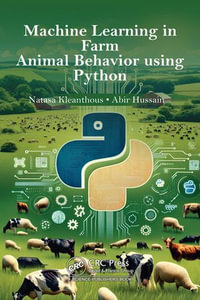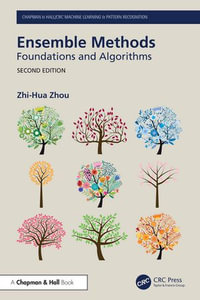
eTEXT
Multiobjective Problem Solving from Nature
From Concepts to Applications
By: Joshua Knowles (Editor), David Corne (Editor), Kalyanmoy Deb (Editor)
eText | 15 November 2007
At a Glance
eText
$239.00
or
Instant online reading in your Booktopia eTextbook Library *
Read online on
Desktop
Tablet
Mobile
Not downloadable to your eReader or an app
Why choose an eTextbook?
Instant Access *
Purchase and read your book immediately
Read Aloud
Listen and follow along as Bookshelf reads to you
Study Tools
Built-in study tools like highlights and more
* eTextbooks are not downloadable to your eReader or an app and can be accessed via web browsers only. You must be connected to the internet and have no technical issues with your device or browser that could prevent the eTextbook from operating.
ISBN: 9783540729648
ISBN-10: 354072964X
Published: 15th November 2007
Format: PDF
Language: English
Publisher: Springer Nature
You Can Find This eBook In
This product is categorised by
- Non-FictionComputing & I.T.Computer ScienceArtificial IntelligenceNeural Networks & Fuzzy Systems
- Non-FictionComputing & I.T.Computer Programming & Software Development
- Non-FictionMathematicsOptimisationLinear Programming
- Non-FictionEngineering & TechnologyTechnology in GeneralTechnical Design
- Non-FictionMathematicsApplied Mathematics
- Non-FictionComputing & I.T.Computer ScienceArtificial Intelligence
- Non-FictionComputing & I.T.Computer Science
- Non-FictionMathematicsOptimisation























